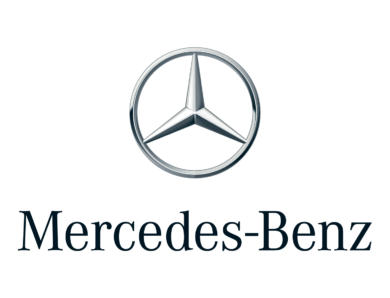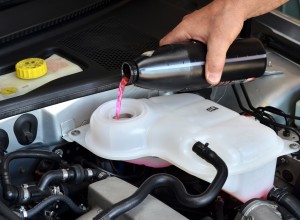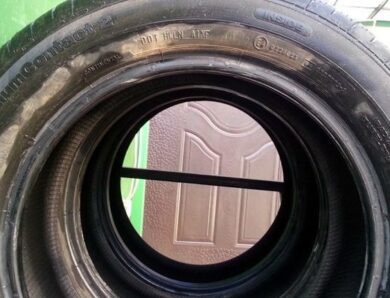Why three diesel engines: possible reasons
Noticeable increase in vibration or shaking, unstable operation of the engine in different modes and the appearance of blue and black exhaust of the diesel engine may indicate that, that diesel triples. The driver feels a strong vibration on the steering wheel, the motor reacts sluggishly to the accelerator pedal, does not develop power, consumes a lot of fuel. This means, that one or more cylinders are not fully operational. The second option is the operation of the internal combustion engine with interruptions.
We also recommend reading the article about it, why the diesel engine smokes white exhaust. In this article you will learn about faults, which lead to the appearance of white smoke from the diesel exhaust pipe in different modes of its operation.
Causes of tripling of diesel internal combustion engines
Answer the question, why the diesel engine triples, it is somewhat easier to determine the causes and locate the fault compared to petrol units. Diesel engines often "triple" for two main reasons: lack of proper compression of the mixture or problems with fuel supply.
It is more difficult to determine the cause in that case, if all cylinders are running, but the diesel still vibrates and runs erratically. Air suction can also be the cause, problems with sensors, ECU, etc.. d. It is often difficult to find such a fault quickly.
The main difference in the operation of the diesel engine is the method of ignition of the fuel-air mixture. Diesel fuel ignites in the cylinder from compression. In other words, diesel is self-igniting. Additionally, it is necessary to take into account that moment, when the "tripling" of the diesel is intensified. Diesel can run on cold, hot, at idle and / or under load. The problem can be found only in a specific narrow range of speeds, occur periodically or are present constantly.
Diesel fuel does not ignite: missing compression
The cylinder-piston group of any internal combustion engine experiences increased loads. During operation, the gaps between the parts of the CNG increase, as the elements wear out. The valves of the gas distribution mechanism are also prone to wear.
The loss of the ability to ensure tightness in the destruction of one of these parts leads to that, that the compression stroke does not provide proper heating of the mixture. Diesel simply cannot ignite.
With insufficient compression (loss of compression) diesel triples strongly after cold start. As a result of heating, the details of the CNG expand, the seal in the cylinder increases. The warmed-up diesel engine shakes noticeably less, the triple effect may disappear completely. This phenomenon is observed only in the absence of critical wear of the CHP or elements of the valve mechanism.
We also recommend reading the article about it, how to self-measure the compression of a diesel engine. In this article you will learn about the basic nuances of troubleshooting, as well as recommendations for accurate measurement results.
It turns out, wear of the cylinder-piston group with engine heating is partially compensated due to that, that diesel fuel in the cylinders ignites due to increasing engine temperature. There is a situation, when the diesel throttle after replacement of a lining of a head of the block of cylinders on new. The working unit with wear of LPG in this case strongly triples "on cold" and podtraivaet "on hot".
This fault is due to, that the new gasket is thicker than the already worked. The result is a reduction in compression, which further exacerbates existing compression problems. Thicker gasket affects the efficiency of spontaneous combustion of the working mixture of diesel and air in such an engine.
Diesel triples because of glow plugs
Spark plugs play an important role in the diesel engine device. The combustion chamber is heated to ensure a "cold" start. This is necessary for that, to ignite the mixture of air and diesel fuel easily at startup. Next, the glow plug continues to maintain the set temperature in the cylinder until then, until the motor finally reaches operating temperature. After that, the spark plugs are automatically turned off.
Spark plugs are also indirectly involved in the process of spraying diesel fuel. At the time of fuel injection, a stream of diesel fuel, which is fed from a diesel injector under high pressure, falls on a heated candle. This helps the fuel to be sprayed more efficiently in the cylinder.
Diesel fuel after contact with candles shatters into small particles, partially evaporates, mixes better with air. The resulting mixture burns as efficiently as possible, giving the energy of the piston. In that case, if the glow plug is faulty, the temperature in the cylinder during cold start will be too low, diesel fuel will not be able to ignite.
The cylinder will be out of order, although it will receive fuel, which then enters the exhaust system of the diesel engine. In this case, the diesel often smokes a dark gray or black exhaust. With increasing temperature of the internal combustion engine fuel (taking into account normal compression) will start practicing, but intermittently. The problem will go away permanently after warming up, but with the next cold start the fault will be repeated.
Unstable operation of the diesel engine after partial warm-up (provided, that the diesel worked normally at cold start) can be explained by that, that the voltage spark is not supplied with electric current in the mode of further maintenance of the required temperature in the cylinder. Candle heating element (rod) will stay cold, diesel fuel will fall on it, but the quality of the spray will decrease significantly. Under such conditions, the mixture formation in the chamber is disturbed, fuel does not burn completely, diesel engine smokes and throbs "hot". In such cases, the glow plugs must be replaced immediately.
Diesel shake and dim: fuel supply problems
If there are problems with fuel supply, then the diesel engine starts to triple for the following reasons:
- the fuel pump does not create the optimum pressure in the fuel supply system;
- the intensity of injection is broken as a result of malfunctions of the diesel injector;
In both cases, the fuel spray deteriorates, the mixture does not burn completely. The pump can create normal pressure, but the fuel injectors supply different amounts of fuel to the cylinders. Fuel in such conditions is distributed unevenly on the cylinders, the engine shakes in different modes. In case of complete impossibility to pump through the injector a portion of diesel fuel, the diesel engine begins to triple. Cleaning, Repair or replacement of injectors must be accompanied by adjustment of the injectors before installation on the engine.
We also recommend reading the article about it, how to clean and adjust diesel injectors. In this article you will learn about it, which occur faults in the operation of the injectors, as well as methods of diagnosis and troubleshooting.
At the same time it is necessary to regulate the pump. The pump may be worn and / or incorrectly adjusted, resulting in pressure, which is not enough to supply the required amount of diesel fuel through restored or replaced injectors. Diesel can start to run rough, with detonation. Replacement of injectors must be accompanied by a test of the efficiency of the pump.
In case of problems with the fuel pump, and with nozzles, details must be adjusted immediately, repair or replace. Detonation on the diesel engine will quickly disable the engine.
Untimely fuel supply
From time to time, during which the fuel-air mixture is in the cylinder before ignition, will depend on the degree of heating of the mixture. Heating affects the completeness of fuel combustion, allowing to minimize losses from poor-quality sawing. At the same time the early moment of injection (ahead) causes diesel wear, while increasing the power of the unit. For this reason, it is necessary to maintain a balance between the angle of advance of the injection and the desired return on the motor.
Many pumping stations are equipped with a solution, which allows you to increase the speed of the diesel engine during a cold start. It turns out, diesel fuel injection becomes early. After increasing the temperature of the engine idle speed is reduced to standard. The advance of injection is also the optimal power / wear ratio for a particular design of the diesel engine.
The injection must be delayed during engine operation under load (increased). This is necessary for maximum combustion of the mixture in the cylinders. It is constructively possible to provide regulation of advance by changing the pressure of diesel fuel when supplying diesel fuel pump. The regulator is mounted on the pump, allowing you to change the advance of fuel injection yourself.
If the pump is worn out, then the advance angle of fuel injection does not coincide with the engine speed of the diesel engine. The result is a tripling of the engine. The injection lead may also be lost due to wear on the fuel pump drive, failure of the pressure reducing valve, clogged return filter, etc.. d.
Improperly constructed injection advance can be manifested as at certain speeds, and constantly, when operating a cold or hot diesel. In this case, the engine, which works normally at idle, three times when you press the accelerator pedal after increasing the crankshaft speed.
In some cases, increasing the advance of injection without repair of injectors and fuel pumps allows you to achieve more stable operation of the engine while driving. Diesel engine still triples "cold", but with increasing temperature begins to work evenly. It is necessary to adjust work of TNVD so, to podtraival only cold motor. After warming up the diesel will work stably both in the idling mode, and under load.
Remember, that tripling and detonation cannot be fully compensated by constant manipulations in advance of injection by adjusting and adjusting the pump. This method can be considered a temporary measure. Prolonged operation with obvious violations significantly affects the life of the diesel engine. For this reason it is necessary to constantly monitor the condition of the power supply system of the diesel engine and timely engage in maintenance and repair of high-precision diesel fuel equipment..




